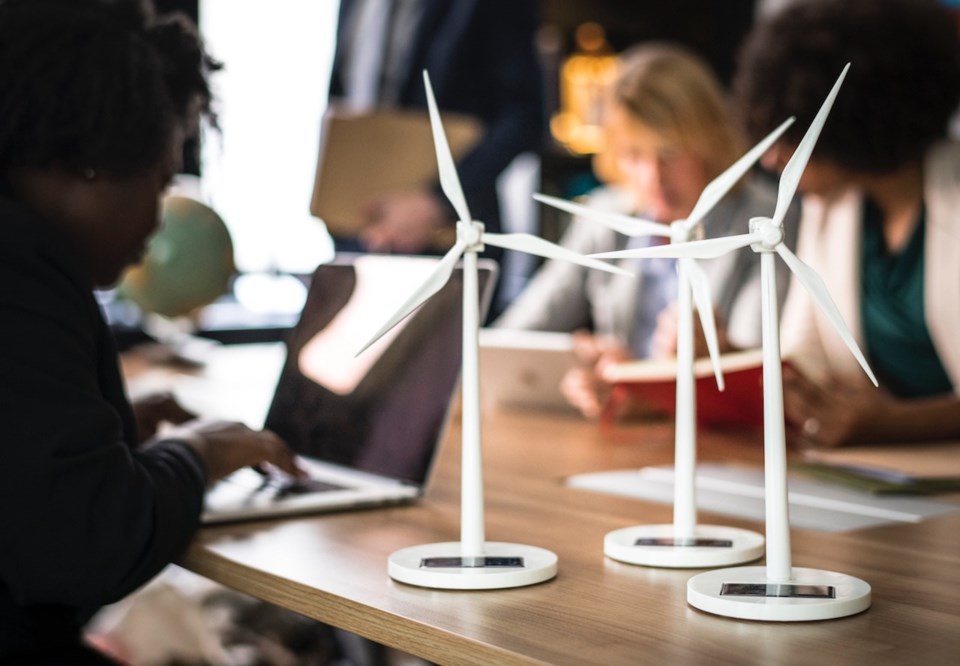Anthropogenic climate change – climate change due to the activities of humans - presents the greatest challenge of this century. Canada exports approximately $85 billion in value of crude oil, refined petroleum products and natural gas annually, and our economy is heavily dependent on the very resources that generate some of the most egregious greenhouse gas emissions. Canada has a higher rate of warming than most other regions of the world and consumption is an important part of the challenge - the oil and gas sector accounts for 26 per cent of total emissions nationally, followed closely by the transportation sector at 24 per cent.
Climate change affects almost every aspect of our lives, from water supply and agriculture to security of our communities. Across B.C., average temperatures are increasing and extreme weather is becoming more frequent, with communities devastated by floods, forest fires and rising sea levels. There is broad consensus that financing the shift to a low carbon economy will require hundreds of millions of dollars in Canada alone for new technologies for clean energy, reduction of waste, and other strategies for reduction of emissions. Managing these risks is essential to protecting our health and well-being. While climate change mitigation and adaptation is much discussed in our community, one aspect, how to finance it, can be complex, and to some, incomprehensible.
On Saturday March 23, researchers, performing artists and community members will come together on Bowen Island to discuss how to finance climate change adaptation and mitigation, and how to use the performing arts to foster public policy discussion. The community meeting’s format is five speakers plus a performance aspect and then an open exchange of ideas.
Dr. Sally Aitken is a professor in the Department of Forest and Conservation Sciences and the associate dean of research and innovation at UBC. She will talk about the capacity of trees to absorb carbon and the stresses and limits we may be placing on forests with current forest management practices and extreme weather events. She is currently researching the capacity of forest populations to adapt genetically to projected future climates and will discuss why trees alone will not solve our carbon problem.
I am a professor of law at UBC and will be talking about the fiduciary obligations of corporate directors and officers, pension trustees and asset managers to address climate-related financial risk.
Fiduciary duty requires that directors are undertaking efforts to identify risks to their business from climate change; that they have put appropriate strategies in place and that they are monitoring the actions of the individuals charged with the move to lower carbon use and best environmental practices.
I will also discuss the recent national Expert Panel on Sustainable Finance and new ideas for financing the transition to a sustainable economy.
Dr. Sumudu Atapattu of the University of Wisconsin Law School will speak on the issue of justice, climate finance and developing nations. Her research includes the phenomenon of “disappearing states,” climate change-induced human migration, examining how small island states, low-lying cities and poor and Indigenous communities will experience the adverse effects of climate change more than others. Climate finance must therefore take account of human rights in addressing climate change and developing new adaptation strategies.
Professor Cheryl Wade, St. John’s University School of Law, New York, will provide insights into the challenges for tackling climate change, faced with a resistant Trump administration and the rise of a “post-racial America”. African American and Latinx communities are already disproportionately impacted by climate change and she will discuss how climate harm will be irreparable as a result of Americans’ unwillingness to engage in honest discourse about racism.
The discussion will then shift to the potential of the performing arts to help our conversations about climate finance.
Dr. Helen Eastman and Alex Silverman from Oxford UK will discuss use of the performing arts in communicating complex issues such as climate finance. They are the creative director and composer of the Foreclosure Follies, a Greek-chorus styled cabaret that grew out of a knowledge exchange with scholars, economists and others that examined fairness in financial markets and toured New York, London, Vancouver, Montreal and Athens. With the help of the Live Canon ensemble, they will give a “musical lecture” on climate finance.
All are welcome to attend the community meeting, from 3 p.m. to 4:30 p.m., Saturday March 23, 2019 at Cates Hill Chapel.



